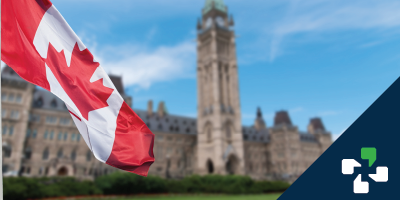
As Canada battles the second wave of COVID-19, the Canadian healthcare system’s capacity to cope is nearing its breaking point. Capacity, both in terms of our physical infrastructure and the number of health workers on the frontline is significantly stretched in many parts of Canada.
Hospitals, which routinely run at 100 – 120% capacity are scrambling to avoid cancelling procedures as more resources are needed to treat patients with COVID-19. Direct care providers on the frontlines are working flat out, many to the point of exhaustion.
The optimal level of capacity at hospitals should be below 85%. This enables hospitals to handle surges like the flu season. However, since the COVID-19 pandemic, Canada’s hospitals and healthcare organizations have been operating at 100% – 120% capacity. This severely undermines the ability of healthcare facilities to deliver safe, effective and timely care, as surgeries and treatments are delayed or cancelled.
In addition to physical capacity issues, Canada also has a serious shortage of healthcare workers – those who diagnose, treat and care for patients; work in the laboratories; and provide ancillary services within our institutions. The pandemic is making this already dire situation worse by adding to the heavy workload and causing spikes in stress, anxiety, and depression among our dedicated frontline workers, all too many of whom are leaving the system for other work or retiring due to the toll working during the pandemic has taken on them.
Federal support is not only needed in the short-term but also as Canada moves toward a post-pandemic recovery. We will be dealing with the ramifications of the virus on our healthcare system for years to come.
Addressing the backlog of surgeries and procedures postponed during the pandemic, improving older adult care and transitions to care to ensure the tragedies we have seen in long-term care institutions during COVID-19 are never repeated, and supporting our healthcare workers who have laboured with such dedication in inconceivable circumstances are just a few of the challenges facing the healthcare system.
We will also need to support Canadians who continue to deal with the long-term effects of the virus and those that are dealing with new or worse health effects as a result of being unable to receive treatment during the pandemic.
Last, but certainly not least, we will need to resume important health research sidetracked by the pandemic while continuing COVID-19 research so we can improve our approach to the virus and future pandemics. Achieving this will require additional funding and resources. The federal government will need to step up to support the provinces and territories as they face massive deficits brought about by the COVID-19 pandemic and its aftermath.
For years federal healthcare funding has failed to keep pace with the needs of a growing and aging population. A recent survey by Abacus Data found that 71% of Canadians believe the pandemic has shown that our healthcare system is not properly resourced, is not the same in all parts of the country and needs major improvements now.
COVID-19 has placed Canada in an even more precarious situation, adding to healthcare costs over the short-, medium- and long-term. Provinces and territories cannot shoulder these costs alone – that will devastate our healthcare system, putting it even further behind those of our global counterparts than it was before the pandemic began.
Canada’s healthcare and health research organizations are urging Prime Minister Justin Trudeau and the federal government to increase the federal share of health funding through the Canada Health Transfer and to, at minimum, maintain this share of funding over time.
During the pandemic and beyond, this funding will be vital to delivering necessary healthcare services to Canadians and developing innovations in care. Nearly three in four Canadians agree that the federal government should play a bigger role in healthcare than it does today – and that includes providing more funding to support provincial and territorial health services.
We stand on the brink of a monumental moment in history, with victory over the worst pandemic the world has seen in more than 100 years very nearly in our grasp. As we deal with the crisis at hand, however, we must not fail to fund our future and ensure that Canadians from coast to coast to coast have equitable access to quality healthcare services when and where they need them.
Paul-Émile Cloutier, President and CEO
HealthCareCAN
Related:

Time to get it right: A new national vision for health research in Canada
Oct. 2, 2024 (Ottawa) – Based on ideas from its Vice Presidents of Health Research and Emerging Health Research Institute committees, and input from other leading researchers throughout the Canadian health research ecosystem, HealthCareCAN has developed a new national vision for health research to ensure Canadian health research is world-leading and helps improve health outcomes

HealthCareCAN’s submission to the Standing Committee on Finance’s Pre-Budget Consultations in Advance of the 2025 Federal Budget – Read now!

No summer slowdown as HealthCareCAN keeps influencing implementation of budget commitments
Summer 2024 is shaping up to be even busier than usual as the federal government moves ahead in implementing the federal research system reorganization outlined in Budget 2024. As part of our post-budget engagement with government, HealthCareCAN continues to connect with federal representatives to learn more about the government’s implementation plans and influence their approach.

HealthCareCAN’s submission to the federal research granting councils consultation on the creation of a new capstone research funding organization – Read now!

HealthCareCAN continues to “work the details” of federal budget promises
Deputy Prime Minister and Finance Minister Chrystia Freeland may have stood up in the House of Commons to formally deliver the 2024 federal budget nearly two months ago, but the policy and legislative work is far from over. Key areas of activity for HealthCareCAN include pressing the government to ensure health researchers in healthcare organizations


